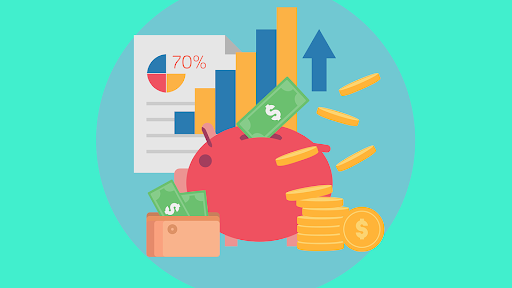Differences in how cars handle after being tuned at each stage
Most drivers only know of one stage of car tuning: the Stage 1 tune. However, there are three different stages of tuning, each with its unique benefits and drawbacks. This article will explore the differences between these three stages and help you decide which one is right for you.
Understanding difference between stage 1 and stage 2 is crucial to what modifications you need to make next, so let’s get into it:
What is Stage 1 tuning?
If you’re new to automotive performance, “Stage 1 tuning” might be foreign to you. But don’t worry – we’re here to help. In a nutshell, Stage 1 tuning is a process that involves making modifications to your car’s engine management system to extract more power from it. It can be done by flashing the ECU (Engine Control Unit) with new software, installing aftermarket hardware components, etc.
However, it’s important to note that Stage 1 tuning is not a “one size fits all” solution – the specific modifications that need to be made will vary depending on the make and model of your vehicle. That’s why it’s always best to consult with a professional tuner before making any changes to your car.
What are the benefits of Stage 1 tuning?
The most significant benefit of Stage 1 tuning is that it can help your car achieve better fuel economy. In addition, it can also improve your car’s acceleration and top speed. And since the modifications made during Stage 1 tuning are relatively minor, they can usually be reversed if you decide that you don’t like the results.
Stage 1 tuning is often thought of as the best bang for your buck when modifying your vehicle. You can see significant gains in horsepower and torque by making a few simple changes. Not to mention, Stage 1 tuning is relatively easy to do and doesn’t require any effective modifications. So if you’re looking to get more out of your car without breaking the bank, Stage 1 tuning is a great place to start.
What are the drawbacks of Stage 1 tuning?
While it can increase power and efficiency, some potential drawbacks of this tuning are also. One of the most significant drawbacks is that Stage 1 tuning can void the car’s warranty. In addition, it can also lead to increased wear and tear on the engine, which can shorten its lifespan. Finally, Stage 1 tuning may not be legal in all jurisdictions, so it’s important to check local laws before modifications. Many car enthusiasts still choose to tune their cars to Stage 1 levels to enjoy improved performance despite these potential drawbacks.
What is Stage 2 tuning?
Stage 2 tuning is the process of modifying a vehicle’s engine to achieve better performance. The modifications made during Stage 2 tuning are typically more extensive than those made during Stage 1, and they can include changes to the intake, exhaust, and fueling system. In addition, the engine’s computer may need to be reconfigured to take advantage of the new components. As a result, Stage 2 tuning can significantly increase power and torque. However, it is essential to note that these modifications can also stress the engine, which may shorten its lifespan. Stage 2 tuning is best suited for experienced drivers who intend to use their vehicles for racing or high-performance applications.
What are the benefits of Stage 2 tuning?
Stage 2 is often the sweet spot between performance and reliability in engine tuning. Unlike Stage 1, which generally focuses on minor tweaks to improve engine output, Stage 2 usually involves more substantial changes that significantly impact power and torque. However, these modifications also come with an increased risk of engine damage, so many tuners recommend sticking with Stage 1 unless you’re an experienced racer or have a dedicated track car. Despite the risks, the rewards of Stage 2 tuning can be significant, especially if you’re looking to extract every last bit of performance from your engine.
What are the drawbacks of Stage 2 tuning?
One of the most significant drawbacks is that it can void your car’s warranty. In addition, Stage 2 tuning can increase your car’s insurance premiums and make it more challenging to sell in the future. Finally, Stage 2 tuning can also increase wear and tear on your car’s engine, resulting in costly repairs. So while Stage 2 tuning may offer some advantages, it’s essential to weigh the potential drawbacks before making any decisions.
What is Stage 3 tuning?
In automotive tuning, Stage 3 is the pinnacle of achievement. It requires an engine capable of delivering mind-blowing power and performance and a suspension and braking system to handle the increased stress. The result is a car transformed into a true street beast, capable of leaving even the most potent supercars in its wake. Of course, achieving Stage 3 tuning is no easy feat. It requires significant investment in both time and money, and only the most skilled tuners will be able to realize its full potential. But for those willing to commit, Stage 3 tuning provides the ultimate driving experience.
What are the benefits of Stage 3 tuning?
While it can provide a significant power boost, it also has several other benefits to improve your driving experience. One of the most notable benefits is the improved throttle response. It can make your car feel more responsive and agile, making it more fun to drive. Stage 3 tuning can also help to improve fuel economy by making your engine more efficient. And, if you’re looking to add some visual flair to your ride, many stage 3 tuners also offer a range of aesthetic upgrades that can give your car a unique look.
What are the drawbacks of Stage 3 tuning?
There are a few potential drawbacks to Stage 3 tuning. First, it can be pretty expensive, as you will need to purchase both a high-performance engine and a custom ECU tune. Second, it is not uncommon for cars that have been tuned to Stage 3 to experience engine knock and other issues due to the increased stress on the engine. Finally, Stage 3 tunes are not always legal for street use, so you may have to take your car to the track or the drag strip to use it to its full potential.
Thank you for reading! We hope this article has provided you with helpful information about the different stages of car tuning!
















